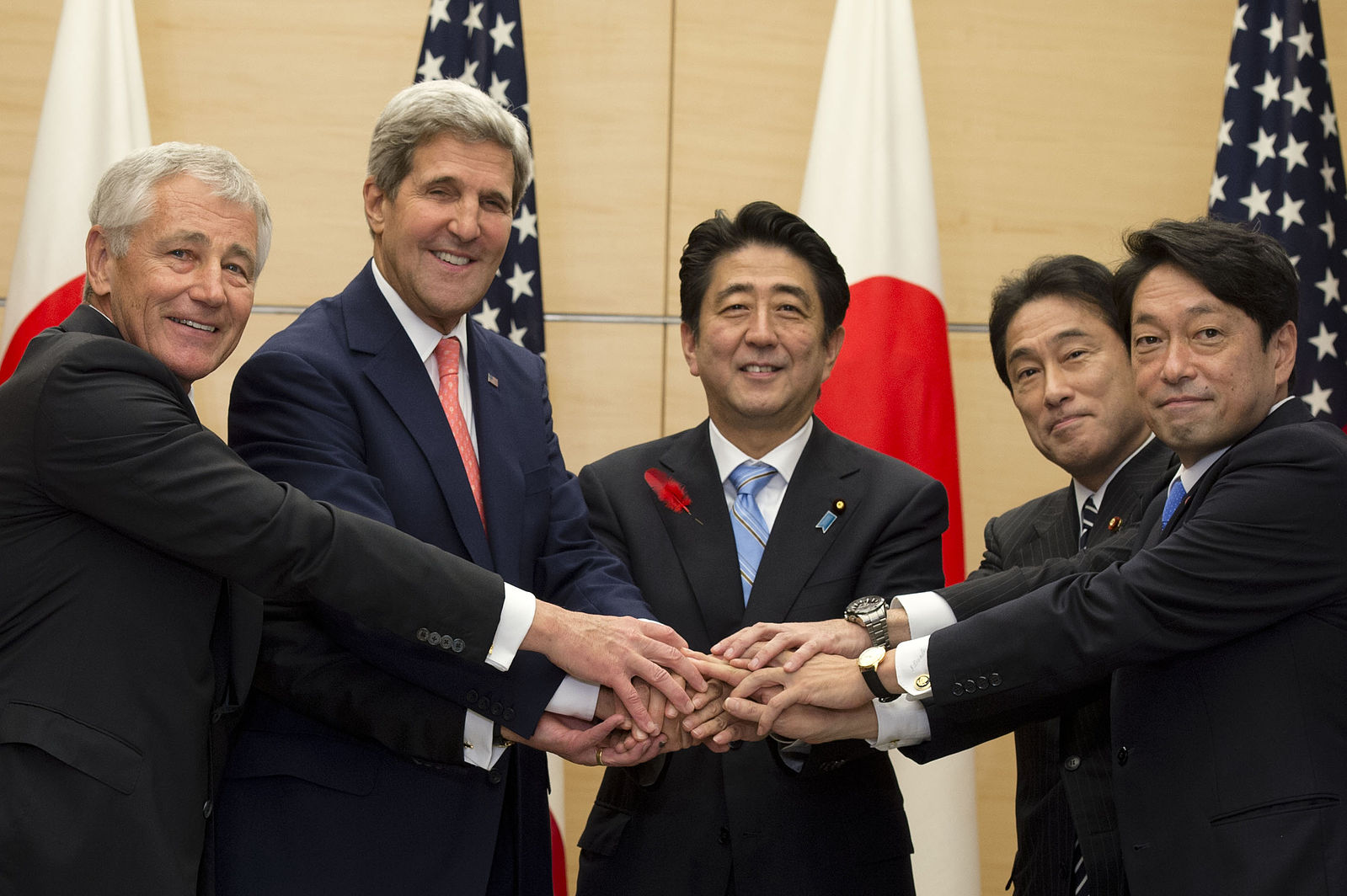Two weeks ago, world leaders gathered in New York City at the UN Climate Summit to renew commitments to battling climate change and set goals ahead of the Paris climate conference next year, when governments will sign a new agreement that will come into effect in 2020. While at the meeting, some heads of state announced environmental goals both ambitious and measured, not all were present.

In Prime Minister Stephen Harper’s absence, Environment Minister Leona Aglukkaq announced modest Canadian commitments to combat climate change: that Canada would follow the United States’ lead on auto emissions standards, and that it would work to reduce hydrofluorocarbon coolants—again in line with US policies. No mention was made of Canada’s oil and gas sectors.
This approach has been characteristic of Canadian environmental policy in recent years. At the Copenhagen conference of 2009, Canada adopted the same greenhouse gas reduction goal as its southern neighbour: 17% below 2005 levels by 2020. By the government’s own admission, Canada is projected to miss this target by 122 megatonnes – almost 20% of Canada’s overall target of 612.
Such performance reflects what has come to be expected of Canada in an international community that is, ostensibly, making efforts to work together against climate change. Perhaps the most visible recent symptom of Canadian climate apathy was the government’s dropping of the Kyoto Accord in 2011. This ongoing indifference to environmental harm has landed Canada five consecutive Fossil of the Year awards, a tongue-in-cheek dishonour given out by a worldwide network of environmental NGOs to the country deemed to be the greatest drag on international progress regarding climate change.
Canada’s approach to climate change is consistent with its strategy of pursuing economic prosperity and an enhanced international presence through the development of Alberta’s oil sands. Yet, despite the sector’s relative wealth, Canada is still subsidizing the fossil fuel industry. The results of this are apparent when observing Canada’s CO2 emissions in 2012. Canada was the 8th largest emitter of carbon in the world and had the 2nd highest emissions per capita of any country in the top ten, behind only the US.
Canada’s performance is troubling when considering recent warnings on climate change. Scientists with the Intergovernmental Panel on Climate Change (IPCC) found in 2013 that, in order to keep the global temperature from rising by 2 degrees Celsius (the agreed-upon limit, above which severe climate change effects would be felt), the earth must stay within a ‘carbon budget’ of about 469 gigatons. That is, from that point in 2013, any more than 469 gigatons of additional CO2 in the atmosphere would tip the rise in temperature over the 2oC threshold. Worryingly, emissions have risen by 2.5% this year, and are up to 40 billion tonnes from 32 billion in 2010, putting the world on pace to use up the carbon ‘budget’ by 2030. More worrying still is that, in 2012, it was estimated that 2,795 gigatons of carbon existed in the world’s proven oil, gas, and coal reserves – six times the remaining budget. If all of this were to be combusted, the 2oC limit could be shattered on the way to far more extreme global warming.

In light of these facts, the reason for the sense of urgency surrounding the Climate Summit becomes clear. Drastic steps must be taken if the IPCC’s words are to be heeded. A look across the Atlantic at the European Union’s recent measures may serve as a guide for the kinds of commitments that a large emitter such as Canada could undertake. Earlier this year, the EU agreed to slash carbon emissions by 40% compared with 1990 levels by 2030, and also to produce 27% of its energy through renewable sources by 2030. Over this past summer, the EU committed to improving energy efficiency by 30% by 2030. While all three policy goals were criticized by environmentalists as being too weak, given what the IPCC says will be necessary, the EU’s busy year demonstrates that steps are being taken by a key emitter towards countering climate change.
At the same time, Canada is not the only laggard in this area. China, which releases nearly twice as much carbon as the second-largest emitter (the US), also failed to send its head of state to New York last month. China’s stance has long been that, as a developing country, it has not contributed to the current climate predicament to the same extent as developed, Western nations. Thus, its position is that it should bear a reduced burden for mitigating any potential damage. This notion of “climate justice” holds a degree of influence among developing countries. But there are signs that China has, to an extent, awakened to the severity of the crisis. Vice Premier Zhang Gaoli announced in New York that China would seek to ‘peak’ CO2 emissions “as early as possible” and reduce carbon intensity in power generation. Though largely inspired by air quality and health concerns, China has adopted policies aimed at reducing reliance on coal, as 2014 “saw the lowest coal consumption growth in a decade” – even if coal consumption still grew. While these are baby steps, the shift in tone indicates an important admission on China’s part that the climate change threat is acute and that it can no longer be ignored.
It seems that, every few years, another international conference on climate change sparks temporary interest in the issue, only to die down as quickly as it arrived. But according to the IPCC there is urgency to this global challenge. As many countries begin to scale up their climate policies to address the threat, more is needed. The world cannot afford to bicker over respective countries’ responsibilities in facing climate change. Canada can no longer sit back and watch other countries take meaningful action. As a top-10 contributor to the problem in our atmosphere, Canada must—and can—be part of the solution to climate change.




